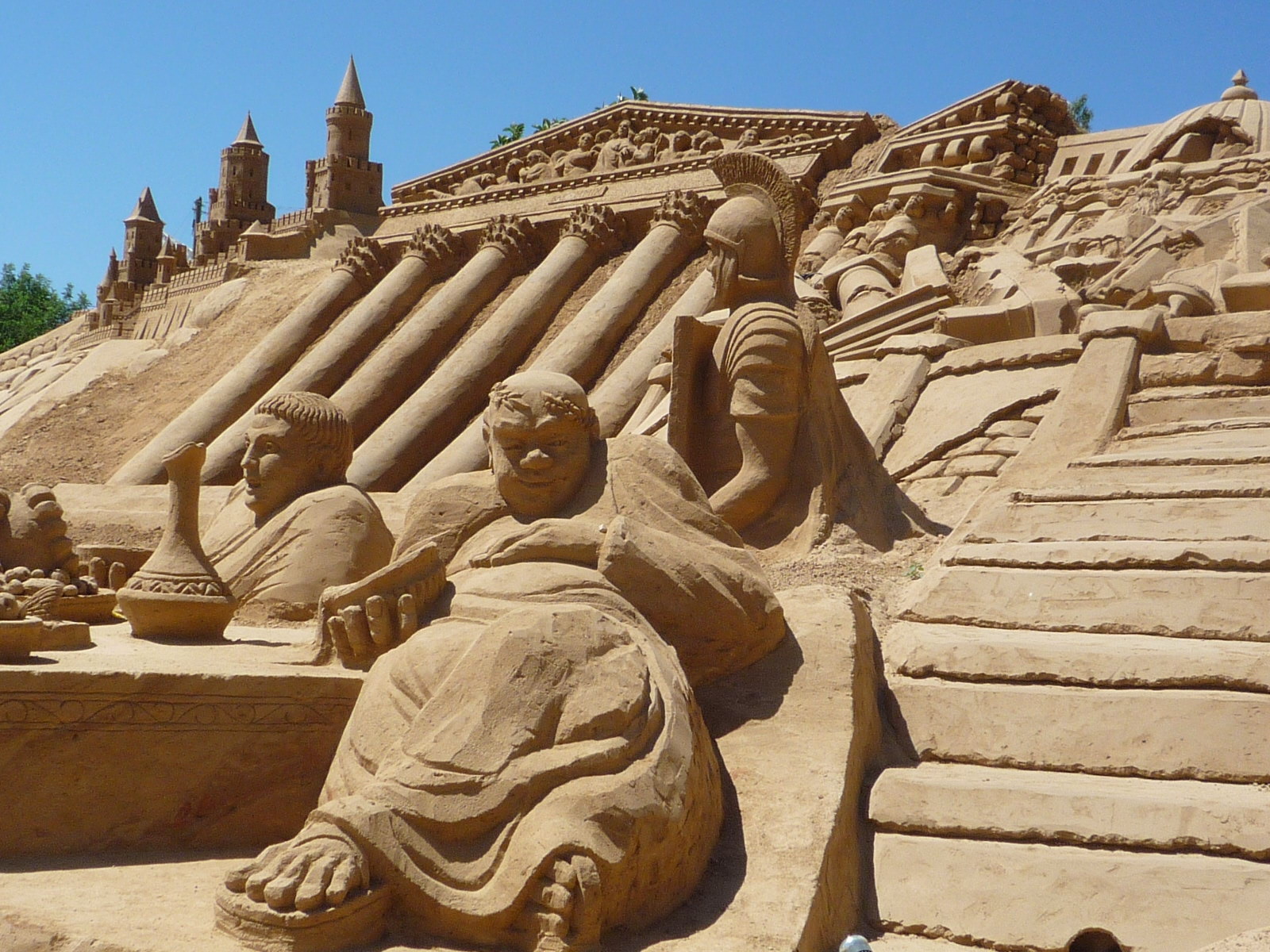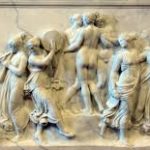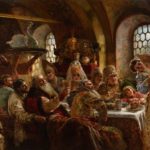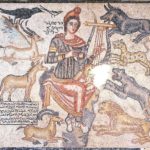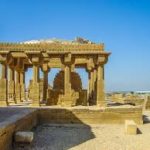Given below is an Ancient Roman Vocabulary Of Words
- Amphitheatre- A structure completely enclosed on all sides, intended for gladiatorial battles and other forms of entertainment
- Apollo-in Roman religion, the god of art, music, and the sun
- Augurs-in early Roman religion, interpreters of signs from the gods
- Capitoline Triad-in Roman religion, the three most important gods (Jupiter, Juno, and Minerva)Infanticide – the practice of killing infants. Latifundia – large landed estates in the Roman Empire (singular: latifundium).Liberal arts – the seven areas of study that formed the basis of education in medieval and early modern Europe. Following Boethius and other late Roman authors, they consisted of grammar, rhetoric, and dialectic or logic (the trivium) and arithmetic, geometry, astronomy, and music (the quadrivium).
- Castra-a military camp
- Cataphractii-units of heavily armored cavalry in the Roman military
- Janus-in early Roman religion, one of the Numina Gods; guardian of the doorway
- Juno-in Roman religion, the queen of the gods; adopted from the Greek goddess Hera
- haruspex- a soothsayer who judged the will of the gods through a study of sacrificial animals’ entrails (esp. the liver).
- hetaira- “companion”; a high-priced call-girl, generally a freedwoman set up in business for herself.
- hiatus: garden.
- Mystery religions – religions that involve initiation into secret rites that promise intense emotional involvement with spiritual forces and a greater chance of individual immortality.
- Neoplatonism – a revival of Platonic philosophy. In the third century a.d., a revival associated with Plotinus; in the Italian Renaissance, a revival associated with Marsilio Ficino who attempted to synthesize Christianity and Platonism.
- hypocausts- central heating systems reserved for the private houses of the rich, and for public buildings. Small stoke-holes were built at the side or basement of the main buildings. Fires were lit, and hot air and smoke from these were allowed to circulate under the floors, which were supported on pillars, and passed up special flues in the walls.
- Ides- middle of the month, falling on the 13th or 15th day.
- Imagines- waxen figured portraits of ancestors.
- Imperator- “emperor”; during the republic, a victorious general was hailed “Imperator” by his troops & subsequently used the title with his name until his triumphal procession in Rome. Augustus received the title from the Senate in 29 BC and made it a permanent part of his name. The title came to signify the supreme ruler (Dersin).
- Patria Potestas-supreme jurisdiction of the father in Roman society
- Patriarch-the father in Roman society; had the religious duty of the pietas
- Jupiter-in Roman religion, the god of heaven, earth, and justice; adopted from the Greek god Zeus
- Lares-in early Roman religion, one type of the Numina Gods; guardians of the fields
- Latifundia-large estates owned by the wealthy
- Legion-a defensive unit in the Roman military, usually consisting of about 4000 soldiers; divided into cohorts
- Limitanei-defenders of the frontier in the Roman military; opposites of the Comitatensis
- Peristilios-decorative gardens found in the villas of the patricians
- Pietas-in Roman religion, making the proper sacrifices at the right times; usually the duty of the patriarch
- Plebeians-the commoners of Roman society; those below the patrician class; made up of plebs rustic and plebs Urbana
- Plebs Rustica-the plebeians that lived in the country; opposites of the plebs Urbana
- Plebs Urbana-the plebeians that lived in the cities; opposites of the plebs Rustica
- Scholae Palatinae-the palace guards, which replaced the Praetorian Guard
- Senate-a sometimes-advisory, sometimes-legislative body of Roman Government; for most of its existence, made up of one hundred members chosen from the Patrician social class
- Testudo-a defensive setup used by the Roman military to protect the heads and sides of soldiers; it consisted of shields arranged in a box formation
- Thermae-Roman public baths; host to bathing, relaxation, and social activities;
- Venus-In Roman religion, the goddess of love; adopted from the Greek goddess Aphrodite
